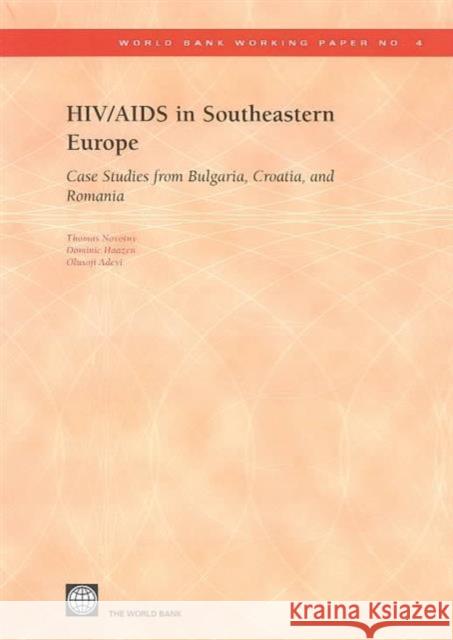Hiv/AIDS in Southeastern Europe: Case Studies from Bulgaria, Croatia, and Romania » książka
Hiv/AIDS in Southeastern Europe: Case Studies from Bulgaria, Croatia, and Romania
ISBN-13: 9780821354834 / Angielski / Miękka / 2003 / 48 str.
The Countries of Southeastern Europe (Bulgaria, Croatia, and Romania) have re-committed themselves to scale up action on the prevention and treatment of HIV/AIDS in the sub-region. These three countries share several social conditions that have led to an alarming increase in HIV infection. These conditions include increasing unemployment and poverty, rapid social changes, a decrease in the accessibility and quality of services and educational opportunities, psychological stress from post-conflict situations, increased substance abuse and sex work, and increased trafficking in women for sexual exploitation. This paper reviews the current status of the AIDS epidemics in the three countries, evaluates the approaches and strategies currently being used in each country, and makes recommendation both for government strategies and for the World Bank's current and potential future involvement in relation to these strategies. Potential interventions are organized according to four general groupings: Epidemiology and Operational Research Health Care and Social Services Health Communications and Promotion Civil Society and Advocacy"











